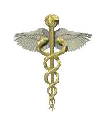
THURSDAY, Feb. 19, 2015 (HealthDay News) — At least 100 patients may have been exposed to medical devices contaminated with a “superbug” at the Ronald Reagan UCLA Medical Center in Los Angeles, where the devices are already believed to be responsible for seven serious infections, including two deaths.
Endoscopes that were used to perform digestive procedures between October and January were contaminated with Carbapenem-Resistant Enterobacteriaceae (CRE), hospital officials said Thursday.
The hospital said about 100 patients may have been exposed to the contaminated devices. The Associated Press reported that 180 patients might be at risk.
Free home-testing kits are being delivered to all potentially infected patients, and UCLA will analyze the results, the medical center said.
The two endoscopes thought responsible for the infections were used in the diagnosis and treatment of pancreatic and bile duct problems, hospital officials told the AP. These specialized devices, called duodenoscopes, are threaded through the digestive system, enabling doctors to diagnose abnormalities such as gallstones and cancers.
“We notified all patients who had this type of procedure, and we were using seven different scopes. Only two of them were found to be infected. In an abundance of caution, we notified everybody,” said hospital spokeswoman Dale Tate.
The duodenoscopes had been cleaned according to standards set by the manufacturer, the hospital said.
“The two scopes involved with the infection were immediately removed, and UCLA is now utilizing a decontamination process that goes above and beyond the manufacturer and national standards,” the hospital said.
The infection is hard to treat because CRE bacteria have become resistant to most available antibiotics. One prior report found that half of people with serious CRE infections die, according to the U.S. Centers for Disease Control and Prevention.
The bacterial infection occurs most often in health-care settings. Most people who develop CRE infections have existing health problems, the CDC said.
Diseases caused by CRE bacteria include pneumonia, urinary tract infections and serious bloodstream or wound infections.
The outbreak has alarmed disease experts.
Because CRE infection is difficult to treat, this is a serious outbreak, Dr. Alex Kallen, an epidemiologist in the CDC’s Division of Healthcare Quality Promotion, told the Los Angeles Times.
“This bacteria is emerging in the U.S., and it’s associated with a high mortality rate,” Kallen said. “We don’t want this circulating anywhere in the community.”
The CDC said it doesn’t keep national figures on CRE infection, but it knows of 47 states with reported cases.
More information
The U.S. Centers for Disease Control and Prevention has more about health-care-associated infections.
Copyright © 2026 HealthDay. All rights reserved.

